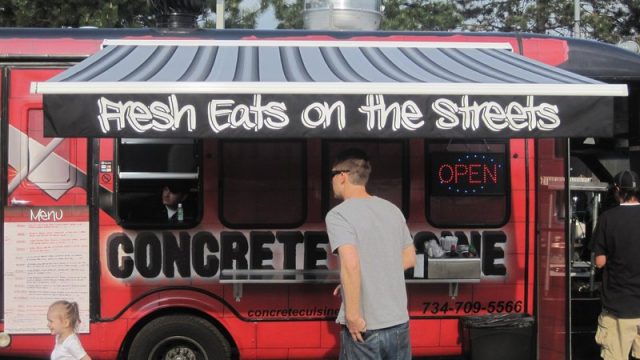Williston's Ban On Food Trucks Is Doing More Harm Than Good

It seems to this observer that local leadership in the Williston area, central to North Dakota’s oil patch, has a bias against certain types of businesses.
Specifically mobile, temporary businesses.
Last week I wrote about Williams County cracking down on so-called “man camps” which are dormitories run by private businesses giving oil workers somewhere to stay. In boom era of the Bakken oil fields these camps were crucial, providing much needed housing at a time when there weren’t nearly enough hotel rooms or apartments to go around. The skyrocketing rents which made national headlines would have been much, much worse had man camps not been around to provide some relief to the overburdened market.
But now Williams County wants them out, and I suspect the motivation is to keep housing prices high for the sake of developers building permanent housing. While that move may be great for said developers, the people paying what is still sky-high rents in the oil patch are still feeling the pinch.
Now comes this article in the Williston Herald asking if it’s maybe time to lift the city’s ban on mobile food vendors. According to the planners and the economic development bureaucrats in that city, lifting the ban is just so gosh darned complicated.
Senior planner Rachel Ressler said this struggle to moderate food trucks isn’t unusual, nor is it specific to the area. She said food trucks have a slight glamour to them; however, even big cities such as New York and Miami struggle to make mobile venders a safe and sustainable asset to the community.
Presently, less-mobile businesses have had ample opportunity to catch up and supply Williston’s hungry population, but the planning department and Williston Economic Development remain hesitant to allow them back in town, even if they can be monitored.
“I can’t tell you the amount of hours spent on this topic,” said Jarcik, who still receives many calls asking for permission to run a mobile business. Mobile car washes and even chiropractors have lobbied to park in Williston. “It’s a complex issue.” …
The issue really isn’t that complex, as I think this passage from the article demonstrates. It’s not that mobile food trucks are really some regulatory quandary or a threat to public health – lots of communities like Fargo have a thriving community of mobile food businesses – but that they’re just not the right sort of business:
Other members of the community are reluctant and believe food trucks would mean less money invested into the growth of the city. Shawn Wenko, executive director of Williston Economic Development, said food trucks, though convenient, would change the community.
“Is there a place for food trucks here? Probably yes,” he said. “But you have to make sure you build a sustainable community.”
That sounds suspiciously like someone who is concerned about mobile food vendors competing with brick-and-mortar restaurants. Just as Williams County seems to be concerned with man camps competing with more permanent housing.
But that’s not how free markets are supposed to work. It is not the job of local bureaucrats to protect citizens from competition among different sorts of businesses.
Some of the chief complaints I hear from people living in the Williston area are the availability of reasonably priced housing and the long, long lines at stores and restaurants. Man camps and mobile food vendors could be addressing some of these issues, bringing down prices and wait times through more supply and competition, but unfortunately those sort of businesses don’t fit into the vision of local leaders.
Local leaders who will no doubt blame someone else when communities like Williston end up with a glut of vacant housing, and abandoned commercial buildings, as we move into the post-oil boom era.




